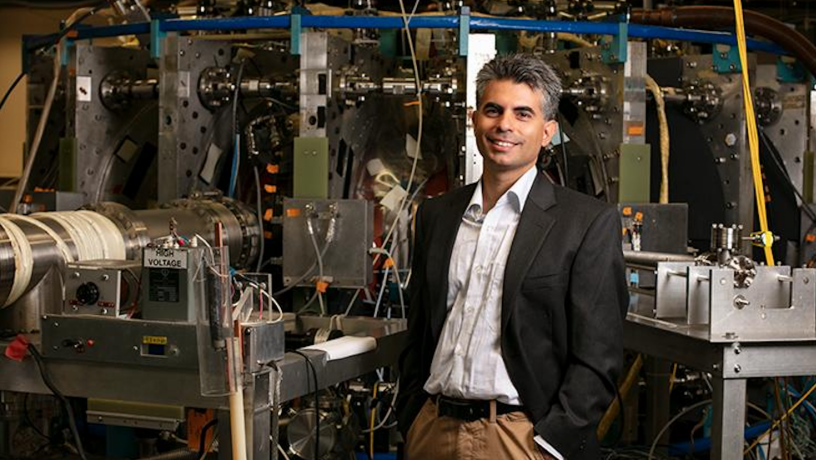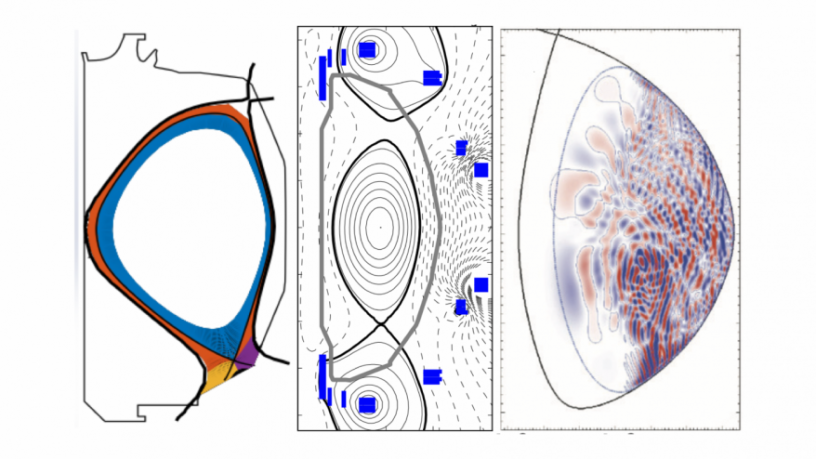Paz-Soldan receives DOE awards for work to advance Fusion Science and Control at National Facilities
Prof. Carlos Paz-Soldan’s research group has received two awards from the US Department of Energy (DOE) to advance the scientific and technical state of the art at national US fusion facilities on both coasts.
The first award, entitled “Disruption and ELM Control Research in the DIII-D Tokamak”, targets the control of edge-localized mode (ELM) instabilities occurring at the plasma edge as well as unintended fast plasma quenches (called disruptions), both of which ultimately have adverse effects on plasma-facing components. The DIII-D Tokamak device, located in San Diego, CA, is a pioneering facility in both of these areas and possesses a comprehensive suite of measurement capabilities to advance the state of the art.
The second award, entitled “Resistive Stability and Shape Optimization Research in NSTX-U”, also targets instability control and configuration research at the National Spherical Torus Experiment Upgrade (NSTX-U), located in Princeton, NJ. The resistive stability work targets developing models and algorithms to deal with asymmetries arising from device assembly and manufacturing, while the configuration research explores the application of plasma shapes whose cross sections resemble a bowtie.
These awards complement Prof. Paz-Soldan’s existing DOE awards to build a comprehensive understanding of tokamak edge instability control by leveraging data from international facilities, as well as understanding the frontiers of science with regards to relativistic electron dynamics in fusion reactor prototypes. Both awards provide research opportunities for doctoral students and early career researchers.


